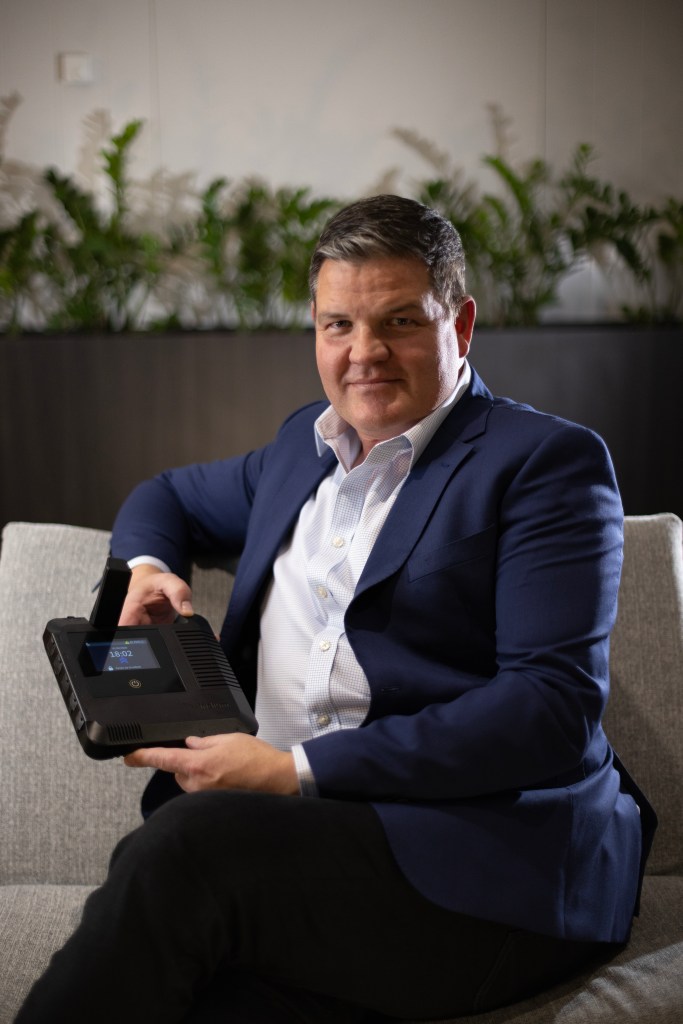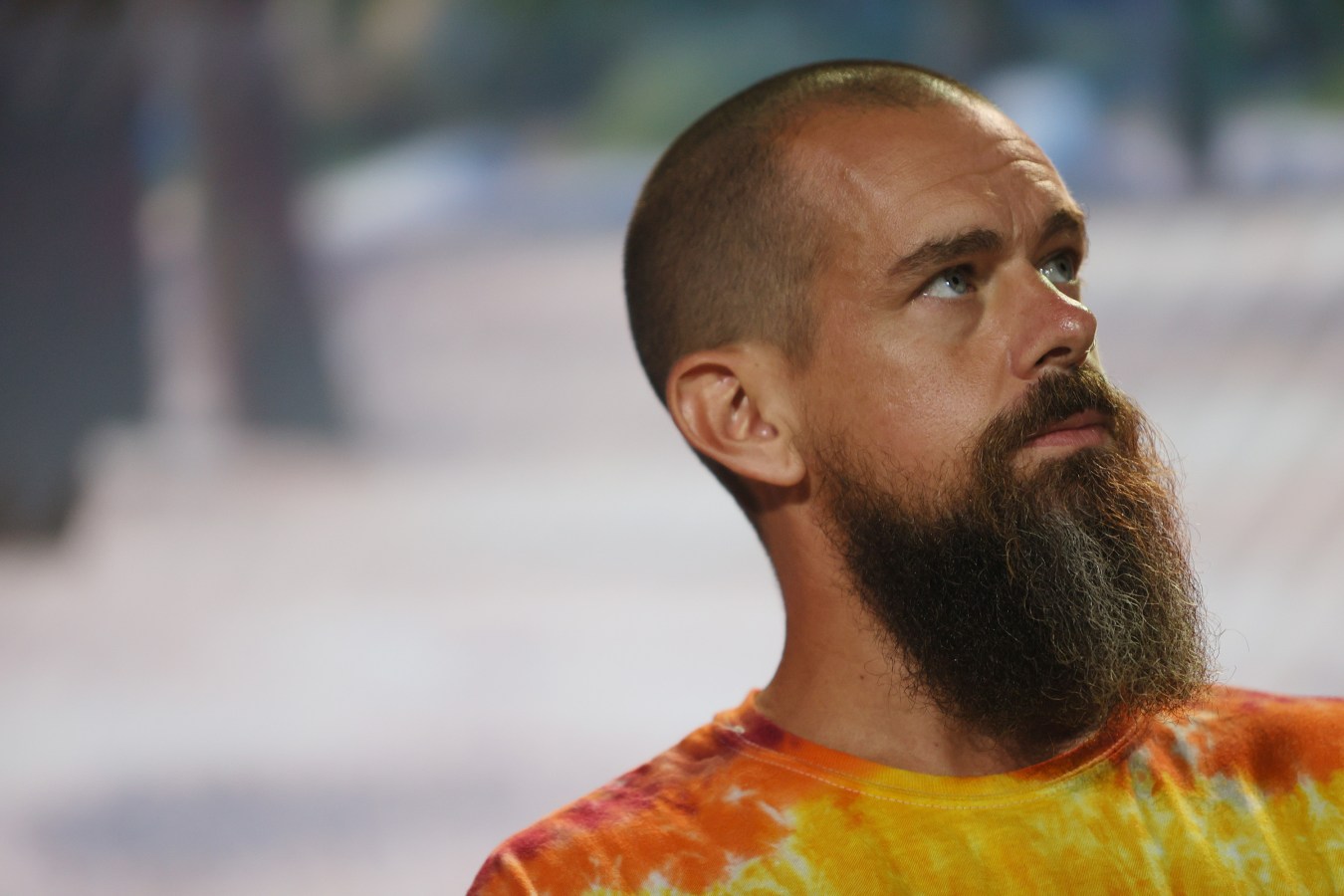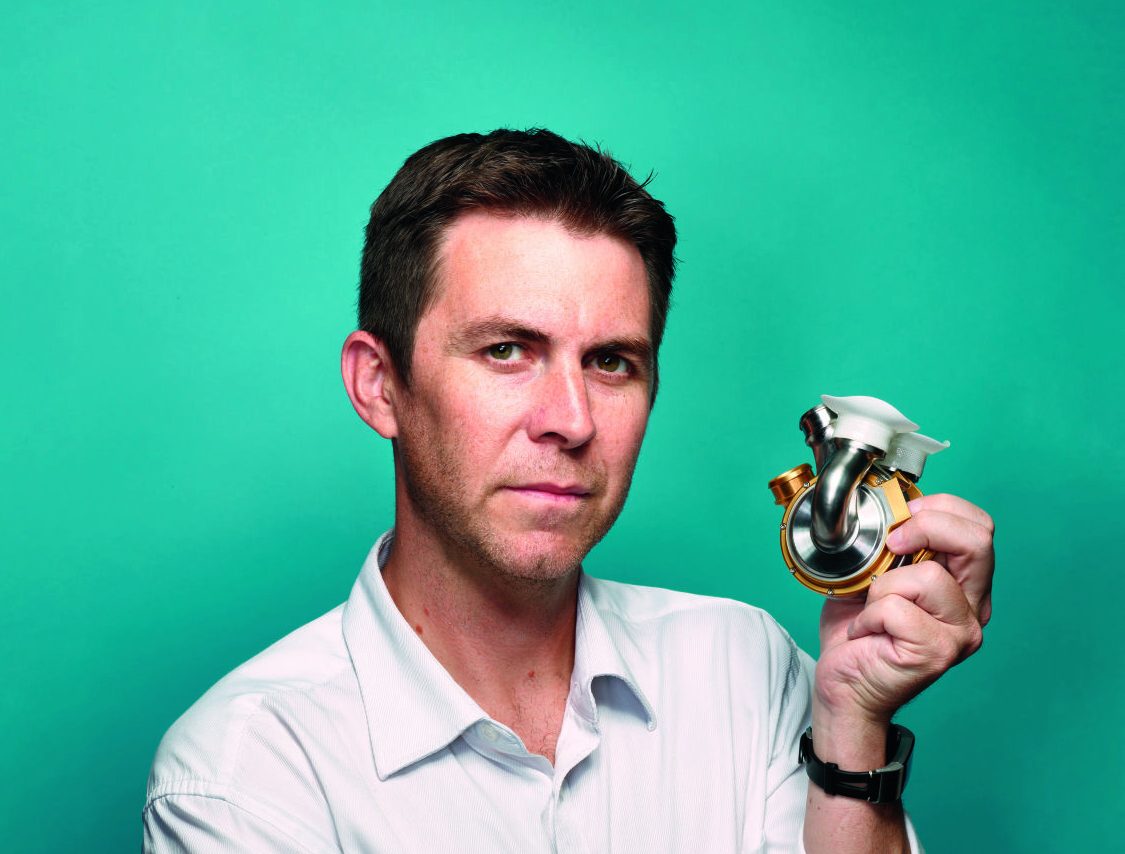Satellite tech communications company, Beam Communications, started in a carpark in an outer Melbourne suburb. Now it is a global leader in the competitive satellite communication device space.

It was a close encounter with a grizzly bear while camping alone in pitch-black darkness of the remote Yellowstone National Park that Michael Capocchi, managing director of Beam Communications, got to test the efficiency of his company’s satellite messaging technology, Zoleo.
“There’s a bear sniffing outside my tent … and there is zero cellular coverage. I am texting my friend on the satellite device going: “should I sound the horn, should I turn the lights on, should I make a lot of noise? True story!” says Capocchi. “He quickly researched it and messaged me back, and I set the panic button off on my car keys, which scared it away. Talk about closely testing the product!”
Capocchi heads up listed communications technology company, Beam Communications [ASX: BCC], a leading provider of state-of-the-art satellite communications products in Australia. Its latest technology, Iridium GO! exec – a mobile hotspot using satellite technology – has been developed for Nasdaq listed, multi-billion-dollar US company, Iridium Communications [NASDAQ: IRDM)].
Gone are the days of having a bad internet connection. Iridium GO! exec, goes a step further in satellite communication technology, offering a portable satellite hotspot. Designed for professionals, it connects smart devices through an IP connection via satellite technology.
With huge demand for the product, Beam expects orders to exceed the initial $20 million minimum commitment from Iridium.
But it hasn’t been instant success for Beam. Capocchi explains that the company has come a long way from its humble beginnings 20 years ago in the outer-Melbourne suburb of Mulgrave. Capocchi, who had worked extensively throughout the communications technology sector, was setting up Iridium’s Asia Pacific operations when he was approached by Telstra. At the time, it wanted a box that it could put into a customer’s home that could emulate a standard telephone service using satellite technology.
“I basically went to my old boss from Optus who was running Tele-IP – an engineering house – and I said: ‘is there anyway you could take the guts out of this phone…build a box around it and give me a dial tone and busy tone and make it work like a phone system, but with satellite?’”
Michael Capocchi, MD Beam Communications
“Strangely enough, the Chairman and largest shareholder in the company at the time was an ex-Telstra research lab scientist, so he knew exactly how to do it. Within about six weeks they had a proof of concept to present to Iridium.”
That concept was developed within six weeks, Capocchi says, and tested in a car park in Mulgrave. Telstra liked what they saw, and after a lengthy negotiation and product development, an order for an initial 5,000 units was made.
Beam was eventually created and Capocchi left Iridium to head up the new company. The company originally had a maritime focus, but has ventured into other areas, such as the personal hands-free technology space and into the personal hot-spot and satellite technology market more recently.
Capocchi approached Iridium in 2012 and suggested that with the introduction of smart phones, it made sense to have satellite communication linked to the devices. Iridium agreed and as a result, Beam developed Iridium Go, a waterproof device, with Wi-Fi and satellite technology in the one device – a world first. It also had an SOS button, allowing users to be rescued wherever they become stranded in the world, irrespective of their location.
“We initially had an order of 5,000 units and since then we have done about 12 times that initial commitment,” he says.
Beam has worked with numerous global telecommunication companies, rolling out satellite communication products that focus on specific areas of need. It partnered with Canadian company Roadpost to develop Zoleo – a smaller, personal-use device using the Iridium satellite network – aimed at hikers, travellers and adventurers that might not be able to access traditional communication networks. The product, which sells for around $345 in Australia, allows users to message each other, through the device and smart phone App.
“People shouldn’t really be doing any hiking or adventure activities in Australia without one of these – it’s a no brainer.
“We lobbied Telstra after the bushfires – every house in a bushfire prone area should be forced to have one of these. And when you evacuate your house – you press the check-in button – and that goes to a centralised database that says ‘you’ve left your house. Don’t waste time searching for me, because we’ve checked out’,” Capocchi says.
While the use of satellite communications technology continues to become more normalised in Australia, Capocchi says Beam’s engineers will continue to look for ways of helping people stay safe and connected.
“At the end of the day our mission is about saving lives, improving safety and enhancing communications worldwide through the design and development of advanced satellite communications,” he says.


